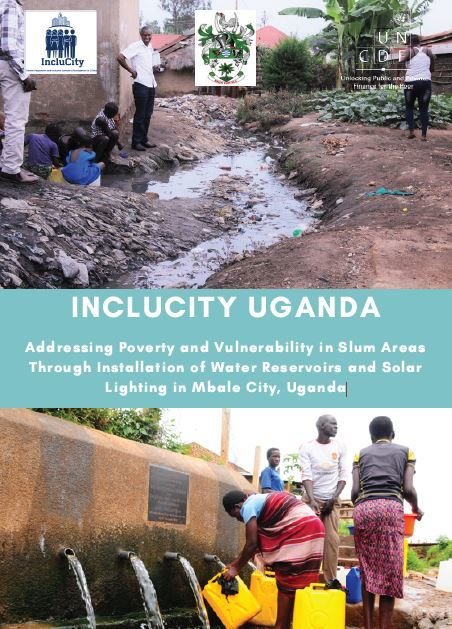IncluCity aims to address the bottlenecks to inclusive development in cities and to test and promote local solutions led by municipalities and local institutions with strong voices ensuring participation of vulnerable groups. The programme will contribute to the commitments under SDGs 1, 5, 9, 10 and 11 with particular focus on reducing inequalities and alleviating poverty among most vulnerable populations including women and girls through increased investments in municipal services and infrastructure.
The Mbale city is the administrative and commercial centre of Mbale District and the largest urban centre in the Mt. Elgon region. An estimated population of 12,000 people live in informal settlements of Namakwekwe, Nabuyonga, Nkoma Namatala,Mooni/Mukhubu and the contemplated population constitutes majorly women, girls andthe youth who are generally vulnerable especially when water is scarce.
Profiling reports prepared by the National Slum dwellers Federation of Uganda (NSDFU)have shown the settlements being vulnerable to poor access to water due to climate change that has affected water supply in the city. Piped water exists but within adequate water points and irregular flow especially during the dry seasons. The seasonal variations in water flow affects the supply and push people into using contaminated water.
Led by UNCDF, Inclucity in Mbale City will target the urban poor, specifically those living in informal settlements by improving water access, curbing the irregularities in water supply through installation of water reservoirs for improved water storage facilities. The installation of solar lights will mitigate elicit sexual behavior that usually thrives in darkness at the water points.
The project is designed in such a way that the water reservoirs and solar lights will be entirely owned by the community and managed by water user committees comprising of women, youth, and people with disabilities (PWDs). Sale of water will allow the committees to pay water bills, conduct project operation and maintenance activities as well save some funds to continue supporting income generating activities in the future.
Please consult the Brochure for more information
